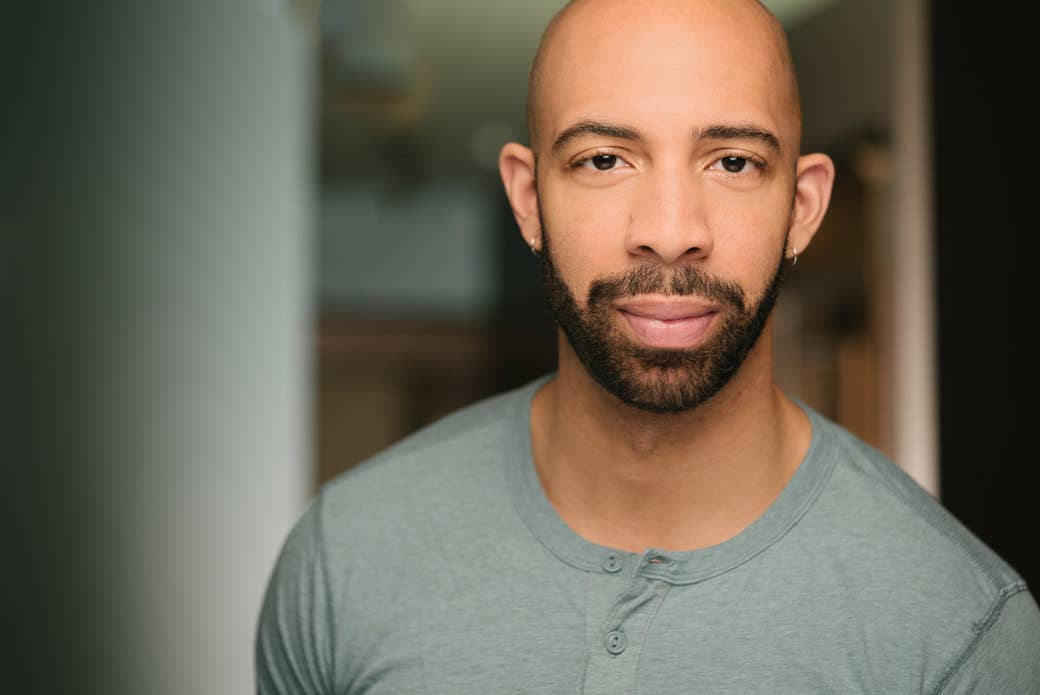
Portland-based actor Damien Geter didn’t consider that his casting in Who’s Afraid of Virginia Woolf? might cause controversy, so he was “completely shocked” when he learned that the Edward Albee estate refused to grant rights to the production in part because his character, Nick, was being played by a black man.
“This is textbook discrimination,” Geter told BuzzFeed News. “These are people in power — I’m assuming they’re all white — who said, ‘No, we’re not gonna give you the rights because this guy is black. If you cast a white person, then you can have the rights.’ That’s textbook racism right there.”
In a letter to casting director and producer Michael Streeter (the letter was also provided to BuzzFeed News), a representative of the office of Edward Albee made it clear that because the character of Nick is expressly written as white — with references to his race in the script — he must be played by a white actor. The letter also said that Streeter went against protocol by hiring actors and advertising the production without prior approval.
Streeter, whose Facebook post drew attention to the estate’s decision, decided to cancel the play outright instead of recast the role with a white actor. Geter said that he and Streeter are now in discussions to potentially work on another project together instead.
Since Streeter made his post — with a signal boost from journalist Mark Harris — the thwarted Virginia Woolf production has inspired a heated debate in the theater community over how closely playwrights’ estates should stick to authorial intent, and whether it’s ever appropriate to refuse rights to a production based on an actor’s race.
Like Streeter, Geter noted, “Legally they have every right to do what they did.” Most experts agree that playwrights and their estates can approve or reject casting for any reason, including race. However, Geter added, “It’s the ethics of it that I’m concerned with.”
Who’s Afraid of Virginia Woolf? focuses on the fraught, vitriolic relationship between married couple George and Martha, whose brutal back-and-forth is exposed when they invite young couple Nick and Honey over one evening. In Streeter’s production, Nick would have been the sole black character.
Over the past few days, Geter has heard stories of the strict parameters placed on productions by the Edward Albee estate, although he has not heard of any other instances of a production being asked to recast an actor of color. But while he’s sympathetic to the idea of preserving an artist’s integrity — even when the playwright is dead — he also believes there is room for flexibility.
“The reins that they hold on people are way too tight,” he said. “I don’t know if the Albee estate is so strict because he just died last year. I don’t know if over time they will loosen things up a bit. It’s hard to tell.”
Before Streeter cast Geter, he had already decided that he wanted Nick to be black in his production of the play. This was a conscious choice that he acknowledged would have an effect on the work and the way audiences might perceive it. For his part, Geter had been thinking about what he might bring to the character as a black man, noting that the play’s 1960s setting — in the midst of the civil rights movement — would add complication to the idea of a black university professor in an interracial marriage. “There’s a lot of background that you can go in to that would add a level of depth,” he said. “The play is good, but it doesn’t hurt to add different dimensions and to have different interpretations.”
And while some might balk at the idea of making any alterations to an artist’s work after his death, Geter believes it’s intrinsic to the medium. “That’s theater,” he continued. “When you go see a show, you don’t want to see the same show you saw five years ago.”
Although Geter is disappointed in the Albee estate’s decision, he’s been glad to see so many people talking about what might otherwise be a small local theater story. He has been thinking about similar debates — he mentioned the backlash against the idea of Idris Elba playing James Bond, and the larger problem of Hollywood whitewashing — and stressed that this is “a conversation that needs to keep happening.”
There’s little Geter feels he can do on an individual level except continue to speak out. What’s key, he said, is making sure the right people are paying attention.
“It’s in the hands of those who have the power. Those are the people who can really effect change,” he said. “And if they’re getting involved in the conversation, and they’re really thinking about these things, I think that there can be a change.”
